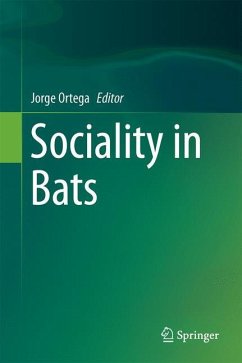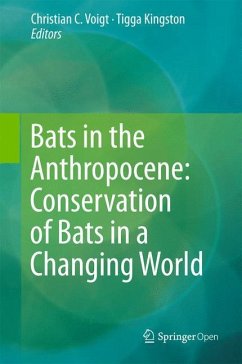
The Evolution of Mammalian Sociality in an Ecological Perspective

PAYBACK Punkte
19 °P sammeln!
This brief discusses factors associated with group formation, group maintenance, group population structure, and other events and processes (e.g., physiology, behavior) related to mammalian social evolution. Within- and between-lineages, features of prehistoric and extant social mammals, patterns and linkages are discussed as components of a possible social "tool-kit". "Top-down" (predators to nutrients), as well as "bottom-up" (nutrients to predators) effects are assessed. The present synthesis also emphasizes outcomes of Hebbian (synaptic) decisions on Malthusian parameters (growth rates of ...
This brief discusses factors associated with group formation, group maintenance, group population structure, and other events and processes (e.g., physiology, behavior) related to mammalian social evolution. Within- and between-lineages, features of prehistoric and extant social mammals, patterns and linkages are discussed as components of a possible social "tool-kit". "Top-down" (predators to nutrients), as well as "bottom-up" (nutrients to predators) effects are assessed. The present synthesis also emphasizes outcomes of Hebbian (synaptic) decisions on Malthusian parameters (growth rates of populations) and their consequences for (shifting) mean fitnesses of populations. Ecology and evolution (EcoEvo) are connected via the organism's "norms of reaction" (genotype x environment interactions; life-history tradeoffs of reproduction, survival, and growth) exposed to selection, with the success of genotypes influenced by intensities of selection as well as neutral (e.g. mutation rates) and stochastic effects. At every turn, life history trajectories are assumed to arise from "decisions" made by types responding to competition for limiting resources constrained by Hamilton's rule (inclusive fitness operations).














